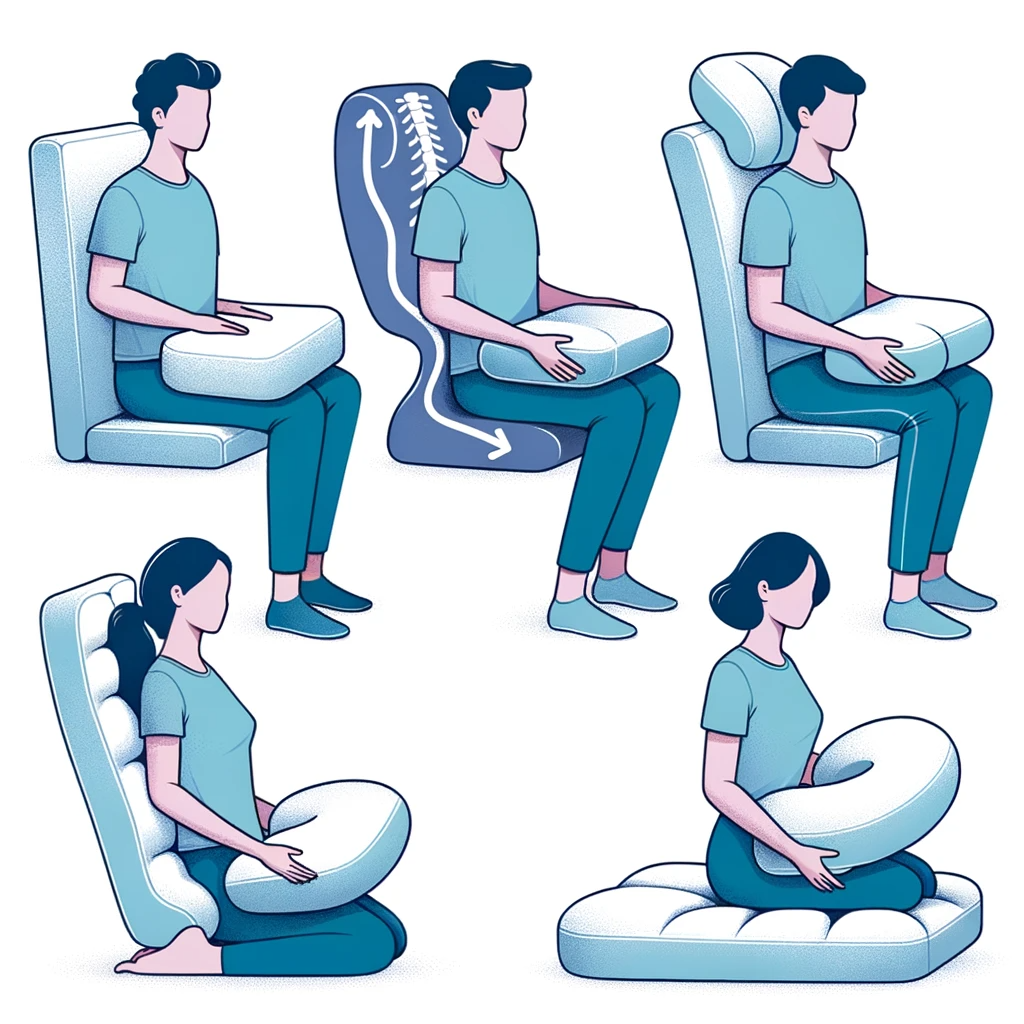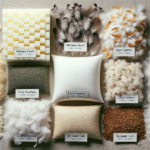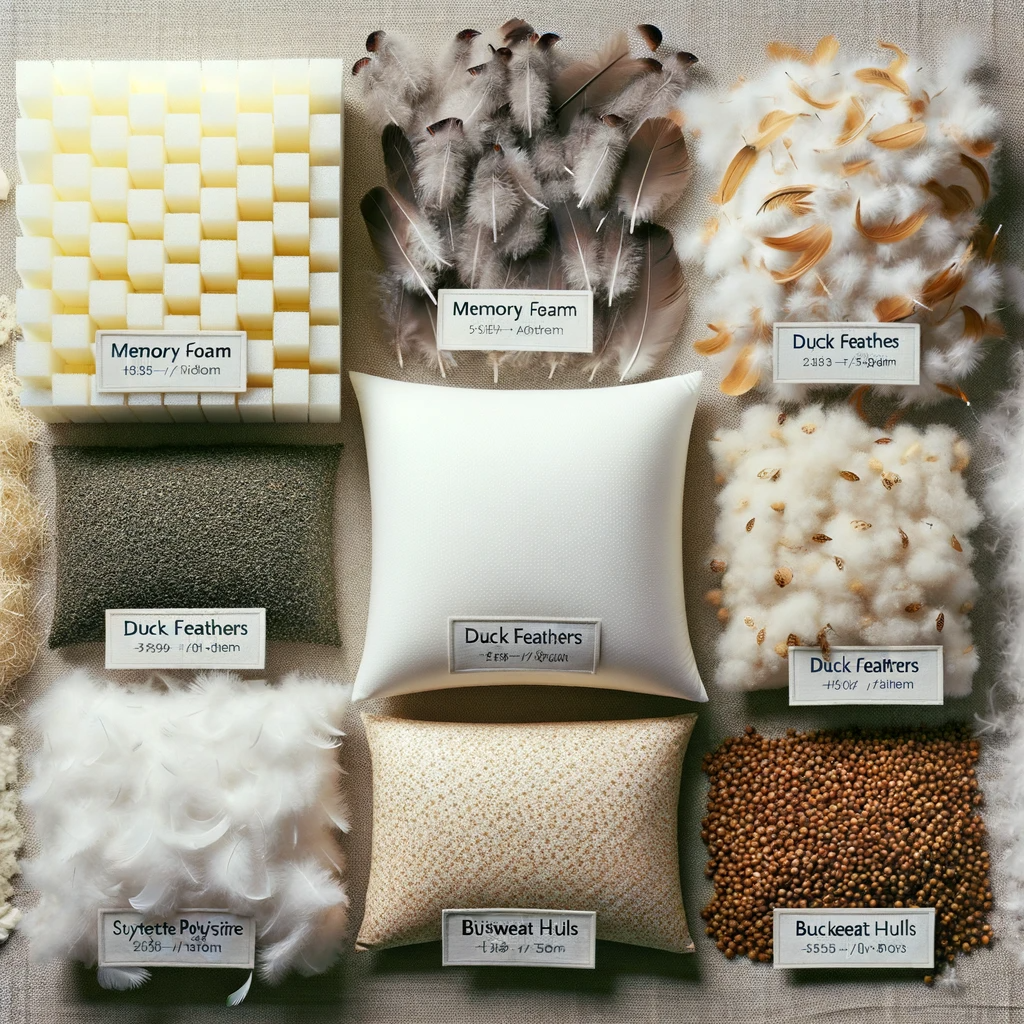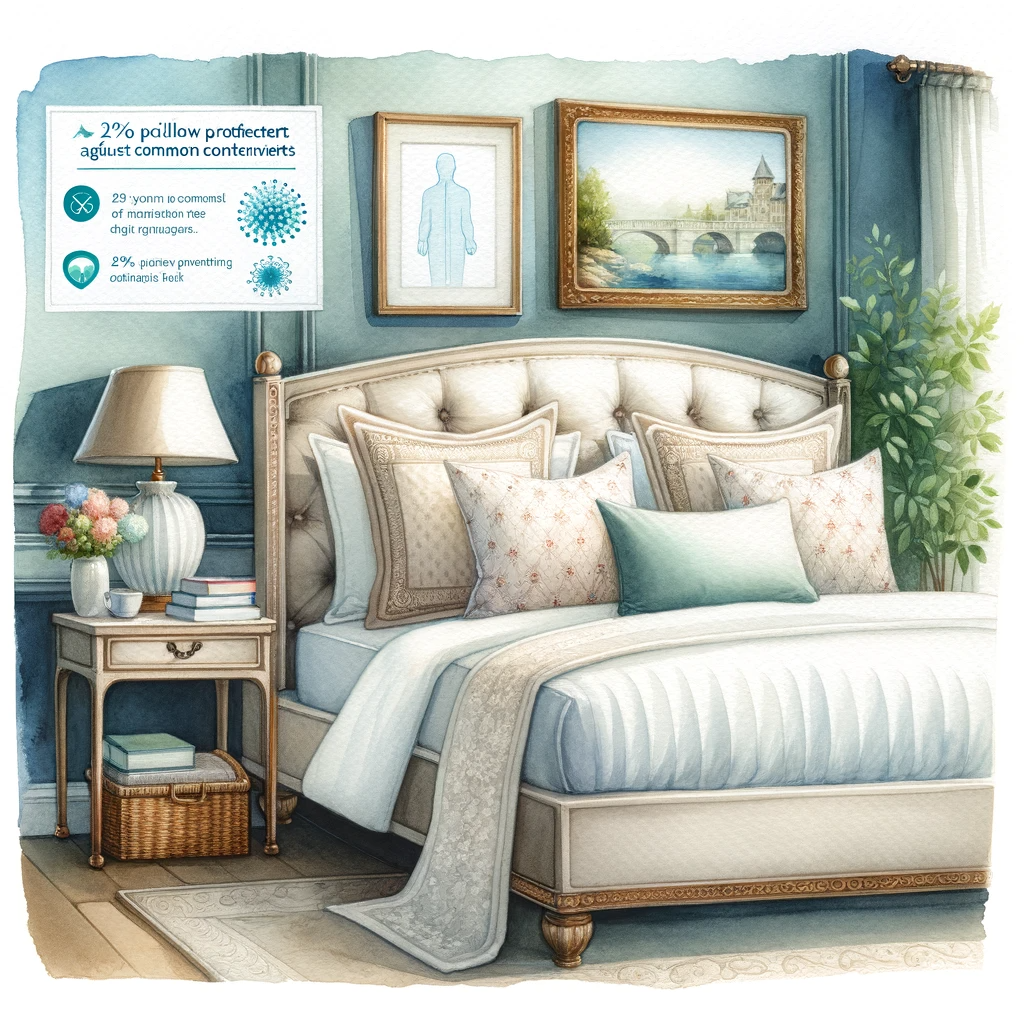Introduction to Pillows for Medical Conditions

The Pillows that Foster Comfort and Encourage Restful Sleep

Pillows, those seemingly humble objects tucked beneath our heads each night, play a vital role in the quality of our sleep. While many may perceive pillows as mere accessories, designed solely for comfort, they possess the potential to be tailored specifically to address various medical conditions.
By understanding the importance of pillows in fostering comfort and promoting restful sleep, we unlock the key to optimizing our overall well-being. Comfort is paramount when it comes to achieving a good night’s sleep.
A well-designed pillow can help alleviate pressure points, reduce muscle tension, and provide proper support for the head, neck, and spine. This is particularly crucial for individuals with medical conditions that affect their sleep quality or exacerbate discomfort throughout the night.
A World of Tailored Support: Pillows as Solutions for Medical Conditions
Beyond providing comfort alone, pillows have evolved into specialized tools that cater to a wide range of medical conditions. Just as each condition manifests differently within our bodies, pillows can be uniquely crafted to address specific needs and provide targeted relief.
From sleep apnea to allergies and asthma or even acid reflux—there exists an array of innovative pillow designs precisely engineered with these conditions in mind.
These specialized pillows go beyond conventional notions of comfort by incorporating elements such as contouring shapes, hypoallergenic materials, elevation angles, or adjustable features.
By adapting pillow construction techniques and materials according to specific medical requirements, individuals can experience transformative improvements in both their sleep quality and overall wellness.
Intriguingly enough, this expanding domain of medically tailored pillows marks an intersection where science and comfort seamlessly combine forces.
As researchers delve deeper into understanding how different medical conditions affect sleep patterns and contribute to discomfort during resting hours – new breakthroughs emerge in developing innovative pillow solutions that offer genuine relief to those in need.
So, let us embark on a fascinating journey through the realm of specialized pillows, exploring how these seemingly ordinary objects have been transformed into extraordinary aids, empowering us to achieve restful sleep and embark upon a path towards improved health and well-being.
Pillows for Sleep Apnea
The Silent Thief of Rest: Understanding Sleep Apnea’s Impact on Quality Sleep
Sleep apnea, a common sleep disorder affecting millions worldwide, is characterized by repetitive pauses in breathing during sleep. These pauses, known as apneas, can last for several seconds and occur multiple times throughout the night. This disruption to normal breathing patterns not only impacts the quality of sleep but also poses serious health risks if left untreated.
The most common type of sleep apnea is obstructive sleep apnea (OSA), where the airway becomes partially or completely blocked during sleep due to relaxed throat muscles. For individuals with sleep apnea, achieving restful slumber can seem like an elusive dream.
The constant interruptions in breathing lead to frequent awakenings, leaving them feeling fatigued even after seemingly adequate hours of rest. Moreover, the recurring drops in oxygen levels during these apneas can have detrimental effects on overall health, increasing the risk of cardiovascular diseases and other related complications.
Breathing Easier: Discovering CPAP Pillows Designed for Enhanced Comfort
Continuous Positive Airway Pressure (CPAP) therapy is considered one of the most effective treatments for managing sleep apnea. It involves using a CPAP machine that delivers a steady flow of pressurized air through a mask worn over the nose or mouth while sleeping.
While CPAP therapy has transformed lives by allowing individuals to maintain unobstructed breathing throughout the night, it does come with its own set of challenges. This is where CPAP pillows come into play as an essential complement to conventional therapy.
These specially designed pillows are crafted with unique shapes and contours to accommodate CPAP mask wearers comfortably. Unlike standard pillows that may cause mask leaks and pressure points due to their height or stiffness, CPAP pillows maintain proper alignment between the head, neck, and mask.
They offer cutouts, recesses, or gentle slopes that allow for optimal positioning of the mask, reducing the likelihood of air leaks and discomfort. Additionally, CPAP pillows often feature hypoallergenic materials and removable covers for easy cleaning, ensuring a hygienic sleeping environment for users.
By promoting a more secure and comfortable fit of the CPAP mask, these pillows contribute to improved sleep quality and adherence to therapy. Sleep apnea poses significant challenges to obtaining restful sleep and maintaining overall health.
However, the advent of CPAP therapy has revolutionized its management. Coupled with specially designed CPAP pillows, individuals can experience enhanced comfort while reaping the benefits of uninterrupted breathing throughout the night.
These pillows address common issues such as mask leaks and pressure points effectively. By incorporating high-quality materials and ergonomic designs into their construction, manufacturers have provided an invaluable solution that brings relief to those suffering from sleep apnea – helping them rediscover peaceful nights filled with sound slumber.
Pillows for Allergies and Asthma
The Intricate Connection: Allergies, Asthma, and Sleep Disturbances
Allergies and asthma are often intertwined with sleep disturbances, creating a vicious cycle that disrupts the restorative nature of sleep. For individuals with allergies or asthma, the bedroom can become a battleground of allergens like dust mites, pollen, pet dander, and mold spores.
These microscopic irritants can trigger allergic reactions or asthma attacks during sleep, leading to coughing, sneezing, wheezing, congestion, and general discomfort. Consequently, the quality of sleep is compromised as one struggles to find relief from these symptoms.
The Solution Lies in Hypoallergenic Pillows
Hypoallergenic pillows provide respite for allergy sufferers by addressing the very source of their distress – allergen exposure during sleep. These specialized pillows are crafted using hypoallergenic materials that are specifically selected to minimize the presence of common triggers such as dust mites and other irritating substances.
Typically made with tightly woven fabrics or synthetic fibers such as polyester or microfiber fillings that resist the accumulation of allergens more effectively than traditional pillows.
Exploring Hypoallergenic Materials Used in Pillow Construction
The materials used in hypoallergenic pillows play a crucial role in mitigating potential allergic reactions during sleep. The tightly woven fabrics used for pillow covers act as an effective barrier against dust mites and other allergens from penetrating into the pillow’s interior layers while also preventing their escape back into the sleeping environment.
Polyester fillings are commonly used due to their resistance to moisture absorption and their ability to deter dust mites from inhabiting the pillow’s core structure. Microfiber fillings offer an excellent alternative since they possess ultra-fine synthetic fibers that create a dense, inhospitable environment for allergens.
These fibers are less prone to clumping together, ensuring better airflow and reducing the chance of moisture buildup. Moreover, hypoallergenic pillows may also incorporate additional antimicrobial treatments that further ward off allergens and inhibit the growth of bacteria or mold.
The Benefits of Hypoallergenic Pillows in Reducing Allergen Exposure During Sleep
Hypoallergenic pillows offer an array of benefits beyond their construction materials. By actively reducing allergen exposure during sleep, these pillows can significantly alleviate allergy symptoms and asthma attacks, fostering a more restful slumber.
The tight fabric weave acts as a protective barrier against microscopic irritants attempting to infiltrate the pillow, thereby minimizing respiratory triggers that could disturb sleep. Hypoallergenic pillows not only provide relief from immediate symptoms but also contribute to long-term management of allergies and asthma.
By consistently using hypoallergenic pillows, individuals create an environment that is less conducive to the growth and proliferation of dust mites and other allergens commonly associated with sleep disturbances. This proactive approach helps improve overall sleep quality over time by reducing exposure to potential triggers, leading to fewer allergic reactions or asthma flare-ups during restorative slumber.
Pillows for Neck Pain and Cervical Support
The Burden of Neck Pain and the Vitality of Proper Cervical Support during Sleep
Neck pain is a prevalent issue that affects countless individuals, impacting their overall well-being and hindering their quality of life. Poor sleeping positions, inadequate neck support, and incorrect alignment of the cervical spine are often significant factors contributing to this discomfort.
The importance of proper cervical support during sleep cannot be overstated, as it plays a crucial role in alleviating neck pain and promoting restorative sleep. One of the most effective solutions for supporting the neck and relieving neck pain is through the use of specialized pillows known as cervical contour pillows.
These pillows are designed to conform to the natural curvature of the neck, providing optimal support throughout the night. By stabilizing and aligning the cervical spine while sleeping, they help alleviate pressure on sensitive muscles and joints that may contribute to neck pain.
Introducing Cervical Contour Pillows: Shaping Comfort for Superior Ergonomics
Cervical contour pillows are meticulously engineered to meet specific anatomical requirements by accounting for individual variations in neck shape, size, and curvature. Their unique shape typically features a central depression or indentation with raised edges on both sides.
This design allows for proper placement and support beneath the head, while also cradling the neck in a neutral position. The ergonomic design principles behind cervical contour pillows facilitate optimal spinal alignment during sleep.
By correctly aligning not just the head but also ensuring a gentle slope from head to shoulders, these pillows help distribute weight evenly across different pressure points along the spine. This even distribution reduces strain on muscles, ligaments, and vertebrae along with alleviating any stress-induced discomfort that may cause or exacerbate neck pain.
Reaping Tangible Benefits: Aligned Spines and Relieved Neck Pain
The benefits of using cervical contour pillows extend beyond mere comfort, as they play a vital role in promoting spinal alignment and alleviating neck pain. By providing optimal support to the neck, these pillows help maintain the natural curvature of the cervical spine, which is crucial for proper alignment from the head to the shoulders.
When the cervical spine is in its ideal position, it helps relieve pressure on nerves, reduces muscle tension, and minimizes stress on intervertebral discs. Consequently, individuals who use cervical contour pillows often experience a decrease in neck pain intensity and frequency.
Furthermore, improved spinal alignment can also enhance overall sleep quality by diminishing sleep disturbances caused by discomfort. Investing in a high-quality cervical contour pillow can offer significant relief for those suffering from neck pain and related issues.
The shape and ergonomic design of these specialized pillows provide unparalleled support to the neck while maintaining proper spinal alignment during sleep. By choosing a pillow that suits individual needs and preferences, users can effectively reduce discomfort, enhance sleep quality, and wake up feeling rejuvenated each morning.
Pillows for Acid Reflux/GERD
Disrupted Sleep: The Effects of Acid Reflux
Acid reflux, also known as gastroesophageal reflux disease (GERD), can be a significant disruptor of sleep quality. This condition occurs when stomach acid flows back into the esophagus, causing discomfort and a burning sensation. For individuals who suffer from acid reflux, lying down at night can exacerbate symptoms due to gravity allowing the acid to flow more easily towards the esophagus.
As a result, many people with GERD experience nighttime heartburn, regurgitation, coughing, and even difficulty breathing. These disruptions can lead to restless nights and fatigue during the day.
Elevating Hope: Wedge-Shaped or Elevated Pillows
Fortunately, there is a solution that can bring relief for those struggling with acid reflux during sleep – wedge-shaped or elevated pillows. These specialized pillows are designed to provide gentle elevation to the upper body, specifically the torso and head region. The unique shape of these pillows allows users to sleep in an inclined position rather than flat on their back or stomach.
Reducing Symptoms: Benefits of Wedge-Shaped or Elevated Pillows
The benefits of using wedge-shaped or elevated pillows for managing acid reflux symptoms during sleep are manifold. Firstly, by elevating the upper body at an angle between 30-45 degrees, these pillows help prevent stomach acid from flowing back into the esophagus by working against gravity’s pull.
This elevation effectively reduces episodes of heartburn and regurgitation that often occur when lying flat. Moreover, these specialized pillows promote better breathing by keeping the airways open and reducing pressure on the chest cavity.
By alleviating pressure on the lungs and throat caused by lying horizontally flat on traditional pillows, wedge-shaped or elevated options can significantly improve airflow, minimize coughing, and make it easier to breathe during sleep. In addition to the physical benefits, these pillows also enhance overall comfort by providing ample support to the upper body.
They are typically made from high-quality materials that contour to the shape of the body, offering a customized and snug fit. This stable positioning can help prevent tossing and turning throughout the night, enabling individuals with acid reflux to experience more restful sleep.
Thus, for individuals struggling with acid reflux or GERD-related symptoms during sleep, using wedge-shaped or elevated pillows presents a promising solution that addresses both discomfort and disrupted sleep quality. By elevating hope along with their upper bodies at night, sufferers can find much-needed relief from acid reflux symptoms and experience improved well-being through better quality sleep.
Pillows for Pregnancy-related Discomforts
Impact that pregnancy has on a woman’s sleep and comfort
Pregnancy is a beautiful and transformative journey, but it can also bring about numerous discomforts that affect sleep quality. As the baby grows, the expectant mother’s body undergoes significant changes, leading to increased pressure on the back, hips, and pelvis. These changes can result in back pain, hip pain, and general discomfort while sleeping.
Additionally, hormonal fluctuations can cause issues such as heartburn and snoring. To address these challenges and ensure expectant mothers get the rest they need for a healthy pregnancy, specialized pillows designed to alleviate pregnancy-related discomforts have become increasingly popular.
Introduction to maternity pillows
Maternity pillows are specifically designed to support pregnant women during sleep by promoting proper spinal alignment and relieving pressure points. They come in various shapes and designs to cater to different needs throughout pregnancy. One popular type is the full-body pillow that resembles a giant “C” or “U” shape.
This versatile pillow provides support for both the belly and back simultaneously, preventing strain on muscles and ligaments. It also helps reduce tossing and turning by providing a cozy cocoon-like feeling.
Another innovative option is the wedge-shaped pillow that targets specific areas of discomfort such as back pain or heartburn. Placing this pillow under the belly or behind the back can help alleviate pressure on those areas while promoting better circulation.
The market offers an array of maternity pillows made from hypoallergenic materials suitable for pregnant women with allergies or sensitivities. Additionally, some models include removable covers for easy cleaning – an essential factor considering hormonal changes during pregnancy may lead to night sweats.
Conclusion

Pregnancy can be both joyful and challenging for expectant mothers who often face sleep disturbances due to discomforts associated with their changing bodies. Thankfully, specialized maternity pillows have emerged as a valuable tool in promoting more restful sleep during pregnancy.
These pillows offer targeted support, relieving pressure on the back, hips, and pelvis while aligning the spine for better sleeping posture.
By reducing tossing and turning and addressing issues such as heartburn and snoring, maternity pillows contribute to improved sleep quality and overall well-being for expectant mothers.
Embracing the evolving needs of pregnant women, manufacturers have continually innovated these pillows to provide customized solutions for individual comfort preferences.
With an array of designs available – from full-body pillows to wedge-shaped options – pregnant women can find the perfect pillow to suit their specific needs throughout different stages of pregnancy. By prioritizing quality sleep during this transformative time, expectant mothers can wake up feeling rejuvenated, energized, and ready to embrace each day with joy and anticipation for what lies ahead.









